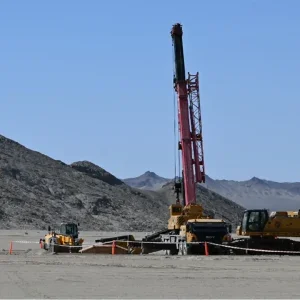
The UK energy industry is ready to play an “integral part” of the country’s economic rebuild after coronavirus, with the low-carbon transition high on the agenda.
That was the response of industry association Energy UK to a series of recommendations made to the government today (6 May) by the Committee on Climate Change (CCC), the key advisory group to Whitehall on climate issues.
In a letter to Prime Minister Boris Johnson and the first ministers of Scotland, Wales and Northern Ireland, the CCC said that greenhouse gas reduction should be a fundamental part of the UK’s post-pandemic recovery plans.
CCC says emissions reduction needs to be built into UK energy industry planning after coronavirus
Six core principles were recommended by the group, which comprises former parliamentarians, academics and industry veterans, including making financial support for carbon-intensive sectors contingent on climate commitments and widening the scope of carbon taxes.
The CCC’s chairman Lord Debden said: “The Covid-19 crisis has shown the importance of planning well for the risks the country faces.
“Recovery means investing in new jobs, cleaner air and improved health. The actions needed to tackle climate change are central to rebuilding our economy.
“The government must prioritise actions that reduce climate risks and avoid measures that lock-in higher emissions.”
Energy UK sees ‘compelling case’ for a post-coronavirus economic recovery built around net-zero industry
Responding to the recommendations, Energy UK’s interim chief executive Audrey Gallacher said there are clear environmental opportunities that will emerge during the economic rebuilding efforts after coronavirus, despite the obvious challenges.
She said: “The pandemic means that before too long we will face the challenge of kick-starting an economic recovery as well as meeting net zero. There’s a compelling case for focusing our recovery efforts around creating a zero-carbon economy which will create numerous opportunities for jobs, investment and other economic benefits – in addition to the clear environmental ones.
“The energy sector will be ready to play an integral part as we further expand low-carbon sources of power, develop further alternatives to fossil fuels like hydrogen, make our homes and businesses energy-efficient and decarbonise heating and transport.”
Growing global consensus around low-carbon recovery opportunity
There have been calls from influential energy associations around the world to seize the opportunity to embed climate resilience and sustainability planning into government policy, as international communities take measures to stimulate their economies in the face of the pandemic.
The International Energy Association (IEA) has led these calls for governments to put clean energy “at the heart” of recovery plans.
“These stimulus packages offer an excellent opportunity to ensure that the essential task of building a secure and sustainable energy future doesn’t get lost amid the flurry of immediate priorities,” said IEA executive director Fatih Birol in a recent commentary.
He added in a separate statement: “The pandemic has made it clearer than ever that reliable energy supplies are indispensable for modern societies to remain resilient in the face of crisis.
“What is also indispensable is quickly putting greenhouse gas emissions into structural decline in order to steer the world towards meeting international climate goals.”
COP26 will provide opportunity to galvanise global action
The International Renewable Energy Agency (IRENA) recently made a similar recommendation, saying that a co-ordinated $130tn global investment into clean energy planning at a time when governments are dishing out huge economic stimulus packages could yield “massive” benefits – both in terms of decarbonisation and global economic growth.
European Union leaders have already voiced their support for a climate-led fiscal response to the crisis, while under-pressure firms in the oil and gas industry have been making commitments to invest in their clean energy transitions as renewable energy sources show signs of resilience amid the downturn.
The CCC’s deputy chairwoman Baroness Brown agrees, citing the UK’s presidency of the COP26 climate summit — delayed until next year as a result of the health crisis — as a unique opportunity to “supercharge” the international response to climate change.
She added: “This pandemic has shown that global risks need global solutions. The risks we face as a globalised society are now in sharp focus — for their part, UK leaders must act decisively on a climate-resilient recovery, and do so together.”






